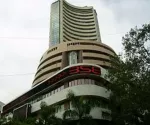
Key Points
Brutal British massacre killed 379+ peaceful protesters in Amritsar
Modi and leaders commemorate martyrs' supreme sacrifice
Jallianwala Bagh remembered as turning point in freedom struggle
Massacre site now a national memorial garden
The massacre occurred on April 13, 1919, when Colonel Reginald Dyer ordered British Indian Army troops to open fire on a peaceful gathering of thousands at Jallianwala Bagh in Amritsar.
Taking to X, PM Modi posted, "We pay homage to the martyrs of Jallianwala Bagh. The coming generations will always remember their indomitable spirit. It was indeed a dark chapter in our nation's history. Their sacrifice became a major turning point in India's freedom struggle."
Union Home Minister Amit Shah also commemorated the Jallianwala Bagh massacre, referring to it as "a dark chapter in India's freedom struggle".
He highlighted that the brutality of British rule ignited widespread anger among Indians, transforming the freedom movement into a mass struggle.
"The Jallianwala Bagh massacre is a dark chapter in India's freedom struggle that shook the entire country. The anger that arose among the countrymen due to the cruelty of the British rule, which had reached the pinnacle of inhumanity, turned the freedom movement into a struggle of the masses," HM Shah wrote in a post on X.
"I pay my tribute to the martyrs who were martyred in Jallianwala Bagh. The country will always cherish the immortal martyrs in its memories," he added.
Uttar Pradesh Chief Minister Yogi Adityanath also honoured the martyrs, referring to Jallianwala Bagh as a "sacred pilgrimage for all patriots". He praised the bravery of those who sacrificed their lives.
Taking to the social media platform X, CM Yogi wrote in a post, "Millions of salutes to the immortal martyrs of Jallianwala Bagh! Jallianwala Bagh is a sacred pilgrimage for all patriots, where the brave sons of the motherland sacrificed their lives while resisting the barbarity of the British rule."
"The sacrifice of the immortal revolutionaries of Jallianwala Bagh is the immortal saga of the self-respect and freedom of the nation, which will always inspire," he added.
On April 13, 1919, women, children, and the elderly were going about their usual routines in the park, some resting after visiting the Golden Temple. A group of individuals staged a silent protest against the Rowlatt Act (also known as the Black Act), which allowed the British government to imprison anyone without a trial.
Without warning, the protestors were surrounded by the British forces. They opened fire on the people in the park, which only stopped when the soldiers nearly ran out of ammunition.
Although the exact number of casualties is still debated, official records estimate that at least 379 people were killed. However, other sources suggest the death toll may be over 1,000, with more than 1,500 individuals wounded. The incident sparked widespread outrage and intensified the Indian struggle for independence.
Today, the Jallianwala Bagh massacre site, situated in Amritsar, Punjab and managed by the Jallianwala Bagh National Memorial Trust, has been turned into a garden and memorial.
Located near the Golden Temple complex, it serves to honour the memory of those who were killed and wounded in the massacre on April 13, 1919. The site features a museum, a gallery, and several memorial structures.
Leave a Comment
Thank you! Your comment has been submitted successfully.







Reader Comments
We welcome thoughtful discussions from our readers. Please keep comments respectful and on-topic.